PART ONE Common Expressions & Key Words

| Korea | Hanguk (Hahn-guuk) |
| Republic of Korea | Taehanmin Guk (Tay-hahn-meen Guuk) |
| South Korea | Nam Han (Nahm Hahn) |
| North Korea | Pukan (Puu-kahn) |
| Korean language | Hangugo (Hahn-guu-goh) ; also, Hanguk-o (Hahn-guuk aw) ; Hangu mal (Hahn-guuk mahl) |
| Korean writing | Hangul (Hahn-guhl) |
| Korean person | Hangukin (Hahn-guuk-een) |
| Korean-American | Hanguk-kye-Miguk-in (Hahn-guuk-kay Me-guuk-een) |
The following greetings are expressed in one Korean phrase, which literally means Are you at peace? Please keep in mind that the hyphenated English phonetics should be pronounced in a smooth, even flow. The hyphens are added to distinguish the syllables making up the words and make it easier to pronounce them. Hello/Good morning/Good afternoon/ Good evening/How are you?/How do you do? Annyong haseyo. . (Ahn-n'yohng hah-say-yoh) The reply to these greetings is a repetition of the above phrase preceded by (naay), which means yes. . (Naay, ahn-n'yohng hah-say-yoh)

Annyong hashimnikka? ? (Ahn-n'yohng hah-sheem-nee-kah?)

Ye, annyong hashimnikka. . (Yay, ahn-n'yohng hah-sheem-nee-kah) Nice to meet you. (Yay, ahn-n'yohng hah-sheem-nee-kah) Nice to meet you.
Mannasu bangapsumnida. . (Mahn-nah-su ban-gahp-sume-nee-dah) How are you doing? Ottoke chinaeseyo? ? (Aht-tah-kay chee-nay-say-yoh?) How have you been? Chal chinae shossoyo? ? (Chahl chee-nay shuh-suh-yoh?)  These sentences are the more formal versions of the preceding one(s). The use of
These sentences are the more formal versions of the preceding one(s). The use of  throughout this book will indicate such formal expressions. Good morning! Choeun achimiyeyo! ! (Choh-eun ah-cheem-ee-ye-yoh)
throughout this book will indicate such formal expressions. Good morning! Choeun achimiyeyo! ! (Choh-eun ah-cheem-ee-ye-yoh)  Choeun achimimnida! ! (Choh-eun ah-cheem-eem-nee-dah) Goodbye. . (Ahn-n'yong he kah-say-yoh) Goodbye. [said by the person leaving] Annyong hi kyeseyo. . (Ahn-yohng he kay-say-yoh) Goodnight. (Ahn-yohng he kay-say-yoh) Goodnight.
Choeun achimimnida! ! (Choh-eun ah-cheem-eem-nee-dah) Goodbye. . (Ahn-n'yong he kah-say-yoh) Goodbye. [said by the person leaving] Annyong hi kyeseyo. . (Ahn-yohng he kay-say-yoh) Goodnight. (Ahn-yohng he kay-say-yoh) Goodnight.
Annyong-hi chumuseyo. . (Ahn-yohng-hee chuu-muu-say-yoh) See you later. Ddo mannayo. . . (Ddoh pape-keht sume-nee-dah) Do you speak English? Yong-o haseyo? ? (Yuhng-ah hah-say-yoh?) Yong-o-rul hashimnikka? ? (Yuhng-ah-ruhl hah-sheem-nee-kah?) Does anyone speak English? Yong-o hashinun bun kyeseo? (Yuhng-ah hah-she-nuhn boon kay-say-yoh?) ? I cannot speak Korean. (Ddoh pape-keht sume-nee-dah) Do you speak English? Yong-o haseyo? ? (Yuhng-ah hah-say-yoh?) Yong-o-rul hashimnikka? ? (Yuhng-ah-ruhl hah-sheem-nee-kah?) Does anyone speak English? Yong-o hashinun bun kyeseo? (Yuhng-ah hah-she-nuhn boon kay-say-yoh?) ? I cannot speak Korean.
Hangugma-reul mot hae-yo. . (Hahn-guuk-mah-ruhl mote hay-yoh) I speak a little Korean. Hangugma-rul chogum hae-yo. (Hahn-guuk-mah-ruhl choh-guhme hay-yoh) . Please speak slowly.
Chon-chon-hi mal hae chuseyo. (Chohn-chohn-he mahl-hay juu-say-yoh) . Please repeat that. Tashi hanbon malhae juseyo. (Tah-shee hahn-bun mahl so-uum-hay juu-say-yoh) . Please write it down.
I chongie-sseo chuseyo. . (Ee chohng-ee-eh ssay-oh chuu-say-yoh) What is this called in Korean? Hangun mal-lo meorago haeyo? (Hahn-guun mahl-loh may-oh-rah-go hay-yoh?) ? What is this called in English? Yong-o-ro meorago haeyo? ? (Yohng-ah-roh may-oh-rah-go hay-yoh?) I understand. Alket ssumnida. . (Ahl-keht sume-nee-dah) I dont understand.
Moruget ssumnida. . (Moe-ruu-gate sume-nee-dah) Yes. Ne. (Nay) . Anio. (Ah-nyoh) . Thank you. Thank you.
Kamsa hamnida. . (Kahm-sah hahm-nee-dah) ALSO : Komap sumnida. . (Koe-mop sume-nee-dah) Thank you very much. . (Chung-mahl koh-mahp-suhm-nee-dah) Youre welcome. Aniyeyo*. . (Ah-ni-yay-yoh) *Literally, Its nothing. (Ah-ni-yay-yoh) *Literally, Its nothing.
Chon maneyo*. . (Chone mahn-eh-yoh) *Literally, Dont mention it. Byolmalssumulyo*. . (Bolmalssumulyo) *Literally, Dont mention it, its my pleasure.
Goenchanayo*. . (Goehn-chahn-ah-yoh) *Literally, Thats all right. Excuse me. Sil lye hamnida. (Sheel lay hahm-nee-dah) Im sorry. (Sheel lay hahm-nee-dah) Im sorry.
Mian hamnida. . (Me-ahn hahm-nee-day)  Choe song hamnida. . (Cho-eh soong hahm-nee-dah) Im very sorry. . (Chung-mahl cho-eh soong hahm-nee-dah) Just a moment, please. (Chung-mahl cho-eh soong hahm-nee-dah) Just a moment, please.
Choe song hamnida. . (Cho-eh soong hahm-nee-dah) Im very sorry. . (Chung-mahl cho-eh soong hahm-nee-dah) Just a moment, please. (Chung-mahl cho-eh soong hahm-nee-dah) Just a moment, please.
Chamkkan manyo. . (Chahm-kahn mahn-yoh)  Jamkkanman kidaryeo jushipshio. (Jahm-kahn-mahn kee-dah-ray-ah juu-ship-she-oh) . Hello! [on the telephone] Yoboseyo? (Yoe-boh-say-yoh?) ? Really? Is that right? Ku-rae-yo? (Kuu-ray-yoh?) ? Yes, thats right. (Nay, kuu-ray-yoh) . (Nay, kuu-ray-yoh) .
Jamkkanman kidaryeo jushipshio. (Jahm-kahn-mahn kee-dah-ray-ah juu-ship-she-oh) . Hello! [on the telephone] Yoboseyo? (Yoe-boh-say-yoh?) ? Really? Is that right? Ku-rae-yo? (Kuu-ray-yoh?) ? Yes, thats right. (Nay, kuu-ray-yoh) . (Nay, kuu-ray-yoh) .
Wheres the toilet? Hwajang-shil-i odisoyo? ? (Hwah-jahng sheel-ee ah-dee-saw-yoh?) Im here on business. Saop ddaymune wassoyo. . (Sah-ahp dday-muu-nay wah-saw-yoh) Im tired. Pigon haeyo. (Pee-gohn hay-yoh) .
I feel sick. Momi apayo. (Moh-me ah-pah-yoh) .  Momi apumnida. . (Moh-me ah-pume-nee-dah) Im sick.
Momi apumnida. . (Moh-me ah-pume-nee-dah) Im sick.
Pyong-i nasseoyo. . (P'yohng-ee nahs-say-oh-yoh) Ive got a bad cold. Chonun shimhan kamgie kollyossumnida. (Chuh-nuun sheem-hahn kahm-ghee-eh kohl-yuh sume-nee-dah) . Please help me.
Towa chuseyo! ! (Toh-wah chuu-say-yoh!) Im thirsty. Mongmallayo. (Mong-mahl-lah-yoh) . Im hungry. Paego payo. (Pay-goh pah-yoh) .
Ill see you later. Najun-ge bayo. . (Nah-june-gay bah-yoh)  Najun-ge poepkessumnida. . (Nah-june-gay poke-kay-sume-nee-dah) *Please keep in mind that the hyphenated English phonetics should be pronounced in a smooth, even flow.
Najun-ge poepkessumnida. . (Nah-june-gay poke-kay-sume-nee-dah) *Please keep in mind that the hyphenated English phonetics should be pronounced in a smooth, even flow.
Read them out loud several times to train your tongue and lips in making the proper sounds smoothly.
PERSONAL THINGS In most ordinary sentences the I ( Cho ) is left out because it is understood. You, He, and She are rarely used because they are also generally understood.
I dont know. Cho-nun morumnida. (Choh-nuun moh-rume-nee-dah) I think so. (Choh-nuun moh-rume-nee-dah) I think so.
Kuroke saenggakamnida. . (Kuu-roh-kay sang-gahk-ahm-nee-dah) Im not going. An ga yo. (Ahn-gah-yoh) . I would like to go.
Ka-go shipsumnida. . (Kah-go ship-sume-nee-dah) I am retired. Chonun toejik haessoyo. . (Choh-nuun tway-jeek hay-ssuh-yoh) Im American.
Chonun Miguksaram-i e yo. . (Choh-nuun Me-guuk-sah-rahm-ee eh-yoh)
| me | chorul (choh-ruhl) ; |
| chege (chah-eh-gay) |
Please give me a glass of water*. Mulhan kop chuseyo. . (Muhl-hahn kope chuu-say-yoh) *The Korean word for please, chebal (chuh-bahl) is seldom used.
The concept of please is built into the high form of verbs.
Where is my room? Chae pang odi itchiyo? ? (Chay pahng ah-dee eet-chee-yoh?) Here is my address. Igoshi chae chuso imnida. . (Ee-guh-she chay chuu-soh eem-nee-dah)
That umbrella is mine. (Kuu uu-sah-nuun chay-go-sheem-nee-dah) .
| you | tangshin (tahng-sheen) * |
| your | tangshinui (tahng-sheen-we) * |

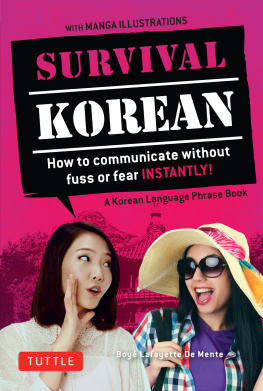
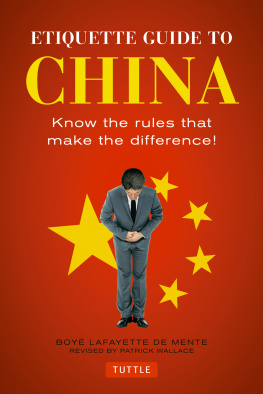
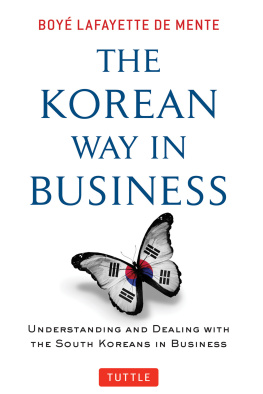
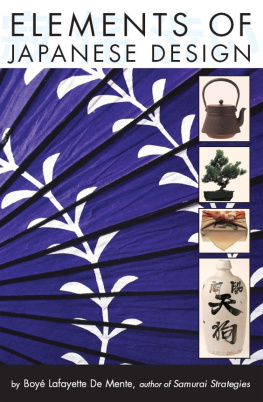
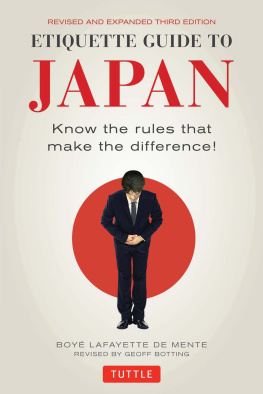
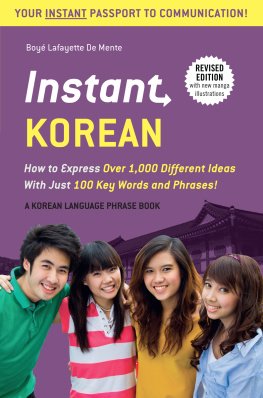
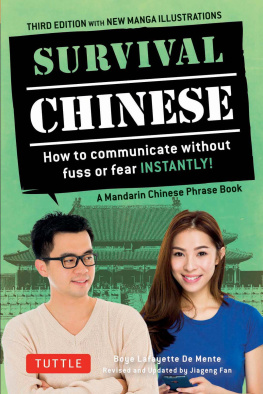
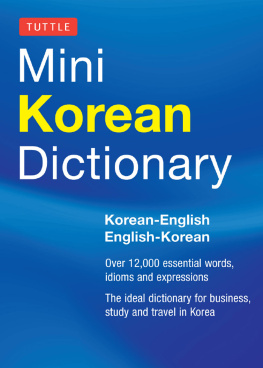

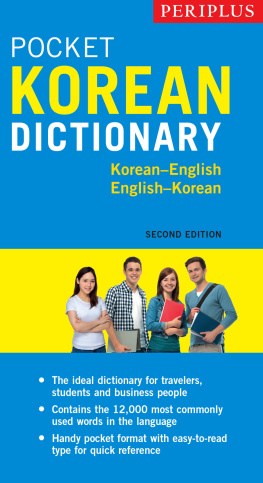
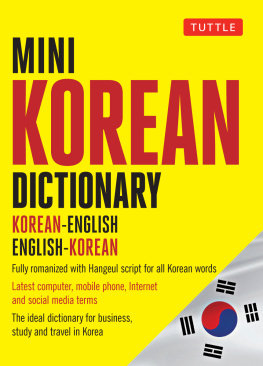
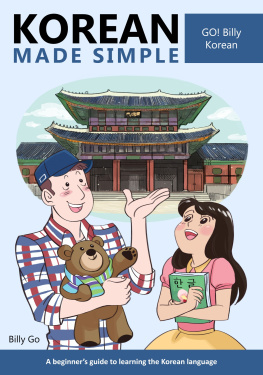
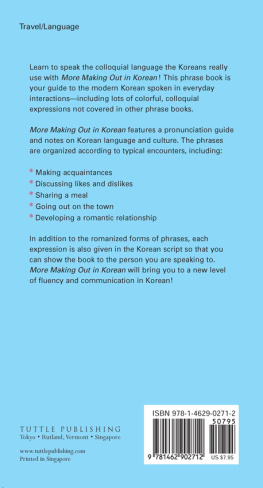
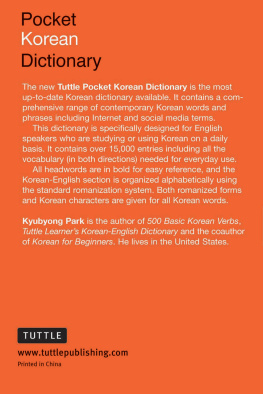
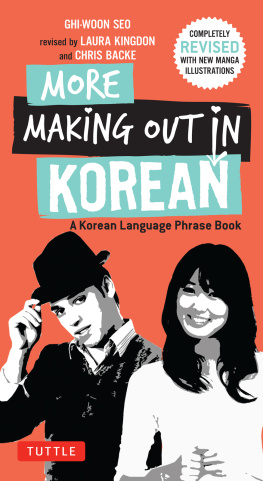
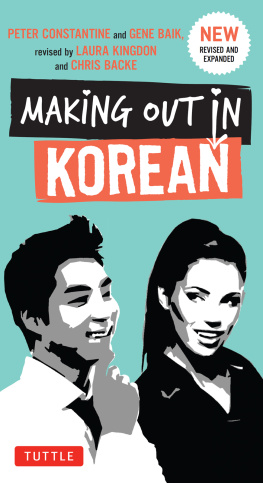

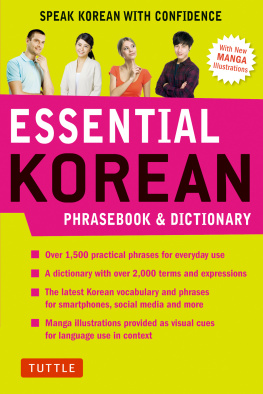

 Annyong hashimnikka? ? (Ahn-n'yohng hah-sheem-nee-kah?)
Annyong hashimnikka? ? (Ahn-n'yohng hah-sheem-nee-kah?)